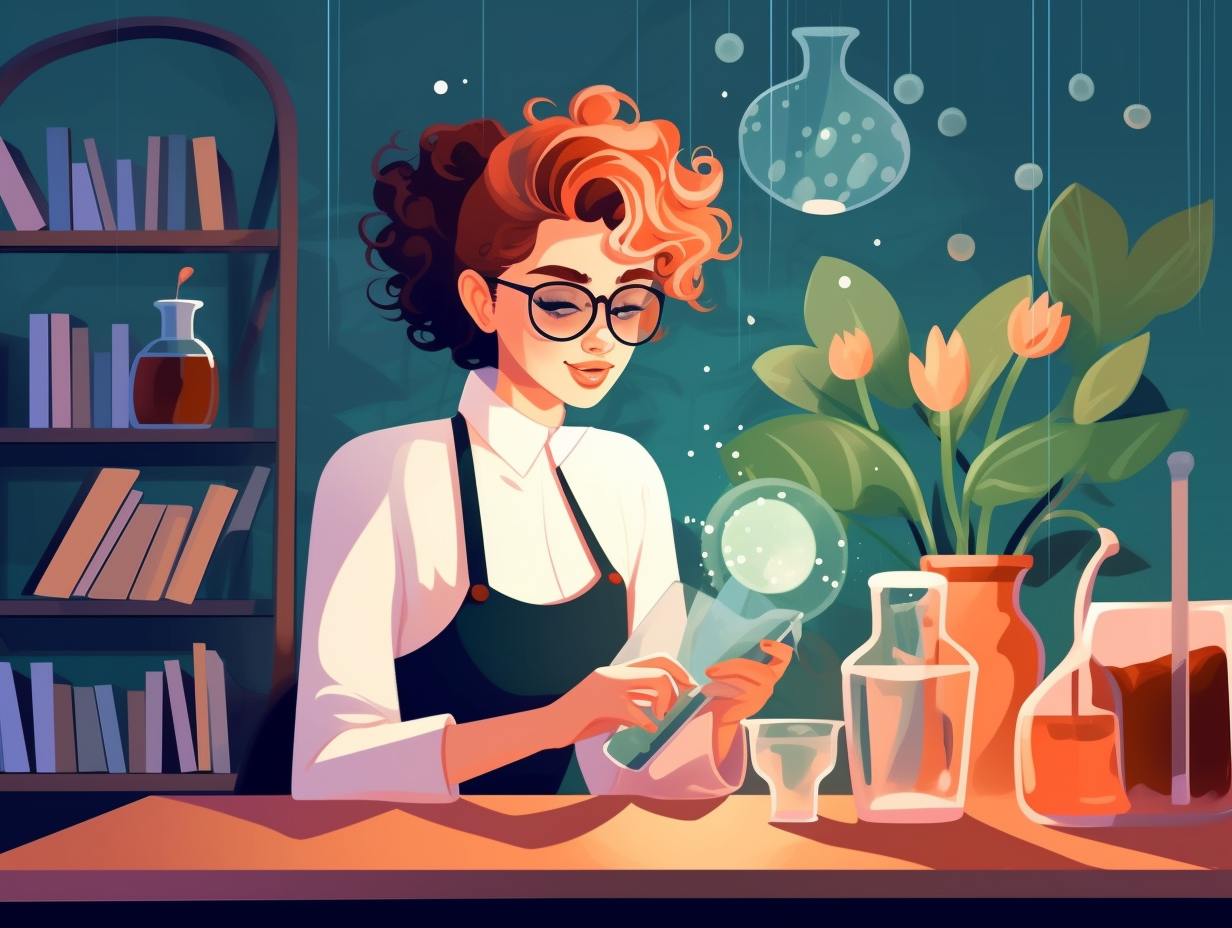Discover the Magic of Molecules: Top 11 Fun Facts About Organic Chemistry You Never Knew!

1. Limonene: The Zesty Superhero
When life hands you lemons, make more than just lemonade: extract some limonene instead! This naturally pun-tastic compound, found in the peels of citrus fruits, is not only a zesty surprise but also packs a punch with its anti-inflammatory, antioxidant, anticancer, and heart-disease-fighting properties. So, let's peel back the health benefits: studies suggest that consuming citrus fruit peel, the major source of dietary limonene, can even reduce the risk of skin cancer. Talk about giving that lemon zest an uplifting twist!
Source => healthline.com
2. Hop Plant: Anti-Inflammatory Star
What did the hop plant say when it wanted to be more than just a beer ingredient? "I'll be an anti-inflammatory superhero!": Humulene, a compound in hops, boasts anti-inflammatory properties rivaling the steroid dexamethasone, and even has potential cancer-fighting abilities. The plot thickens further, as you can also find this wonder chemical in cannabis, sage, and ginseng—talk about versatile!
Source => sciencedirect.com

Did you know coastal ecosystems are like carbon-hoarding dragons, swallowing up "blue carbon" at incredible rates? Discover how they help keep our planet healthy (unless humans spoil the party)!
=> Fun Facts about Carbon
3. Blue Green Algae: The Fancier Chocolatier
Move over, Willy Wonka, there's a new chocolatier in town, and it's got fins and gills: Blue green algae contains phenylethylamine (PEA), a compound even more potent than the PEA found in chocolate, which boasts anti-depressant properties, plays a role in love and monogamy, and is also a natural stimulant linked to the mood-boosting effects of exercise.
Source => clinicaleducation.org
4. Octane Rating: The Gasoline Misconception
You know how we all thought higher octane meant better gas, like "I'm not giving my baby anything but the finest 91-grade vroom-juice!"? Oh, how wrong we were: The octane rating of gasoline is actually based on a comparison between the fuel and a blend of iso-octane and n-heptane, with reference ratings of 100 and 0, respectively, using test methods like the Research Octane Number (RON) and Motor Octane Number (MON). Although these methods have faced scrutiny, they continue to be widely used today despite concerns about accuracy in measuring a fuel's antiknock power in modern engines.
Source => petro-online.com

5. Wine Astringency: Becky with the Good Hair
Ever wondered why wine connoisseurs seem to yell "Becky with the good hair" every time they sip red wine? Tighten your taste buds, because it's time for chemistry: The mouth-puckering astringency in red wine doesn't just come from tannins; it's also influenced by the pH and alcohol content, with acidity boosting the sensation and higher ethanol levels toning it down.
Source => ncbi.nlm.nih.gov
6. Thiols: The Smelly Detectives
When life gives you rotten eggs and skunk spray, make a world-class olfactory cocktail: Our sense of smell is keenly attuned to thiols, foul-smelling organic compounds present in such stenches, with the ability to detect them at astoundingly low concentrations thanks to a specific human odorant receptor.
Source => ncdnadayblog.org
7. Veggie Heroes: Cancer-Fighting Crusaders
Who knew the veggie-verse had its own squad of cancer-fighting superheroes, with broccoli in a cape and carrot rocking a mask? Behold, the mighty power of salad: consuming cruciferous veggies, whole grains, and carrots can potentially lower the risk of various cancers, thanks to phytochemicals like isothiocyanates and carotenoids acting as cancer chemopreventive agents. Go forth, create salads, and save the day!
Source => cancer.gov
8. Lemon's Secret Power: Bacteria Assasin
When life gives you lemons, use them to kill bacteria! That's right, these citrusy supremes are nature's own disinfectants: Lemon essential oils, derived from the peel, are powerfully antimicrobial and antifungal, as they can penetrate bacterial cell membranes and disrupt cellular function, ultimately leading to the demise of these microorganisms. This makes them perfect candidates for food preservation and protection against various bacterial and fungal strains.
Source => sciencedirect.com
9. Scurvy Prevention: Citrus to the Rescue
Ahoy, mateys! Don't be a scurvy dog and forget your daily dose of citrus; let's ward off that pirate's plight with a zesty secret weapon: Vitamin C, or ascorbic acid, is essential for collagen synthesis, and without it, one may find themselves with anemia, gum disease, and other undesirable symptoms leading to scurvy – arrrr!
Source => medicalnewstoday.com

10. Menthol: The Cool Mr. Fresh
Who needs a minty fresh breath mint when you're a walking natural pharmacy?: Menthol, the cool chemical found in your peppermint gum, not only gives you a fresh breath but also battles cancer cells, helps manage pain by exciting GABA receptors, and triggers a chilly sensation on the skin – although it might also make menthol cigarettes a slippery slope for mucosal recognition of nicotine and toxins.
Source => pubmed.ncbi.nlm.nih.gov
11. Theobromine: Mood-Boosting Party in a Bean
Ah, so it isn't just my coffee that's having a party with my brain cells: tea leaves and cocoa beans contain a compound called theobromine, a milder cousin of caffeine, which lightens up our mood and boosts mental alertness, making chocolate and energy drinks a delightful brain-tickler.
Source => ncbi.nlm.nih.gov
Related Fun Facts




















